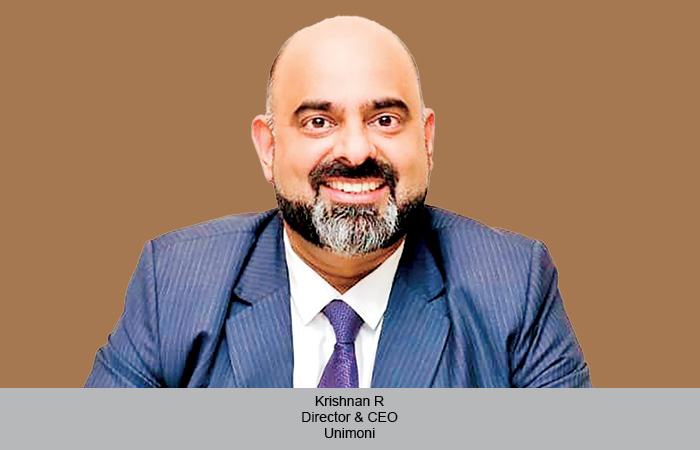Software as a Service, or SaaS, it is believed will accelerate the democratisation of travel where offers are co-produced in collaboration with ecosystem participants. Three experts share their views on how SaaS is bringing about tremendous change even in the tourism business.
Hazel Jain
The tourism and hospitality industry is going through one of the most challenging periods now. It is beyond any question, that the industry be dynamic in response to emerging situations whilst keeping a tight leash on the operating costs as much as possible. Adopting a SaaS platform to power business operations provides the perfect solution for this situation – with flexibility being made possible from a transaction scale perspective and with the ability to strictly manage costs based on the revenues accrued by the travel company.
Explaining this, Jerrin Jos, Founder and CEO of Verteil Technologies, says, “SaaS-based solution reduces the financial burden on travel agents as it typically does not involve upfront fees, at least it is usually a low value. There are no monthly or annual maintenance fees. So, it’s extremely cost-effective, especially in an industry like travel where travel agents need to have rolling capital which makes any fixed investment really difficult.”
SaaS, by its very nature, provides multiple benefits. For starters, the software is typically made available in a cloud environment (such as AWS). What this means is that the software is up and running. Setting up new users can be done very quickly, as well as the ability to support tremendous increase in transaction volumes very quickly. The commercial model is structure on a pay-per-use basis. This means that huge upfront investments in infrastructure are not required, as well as the costs incurred are proportionate only to the revenues generated.
Jos feels that his product that is SaaS-based is helping the travel businesses tremendously. “Travel, especially air travel, is evolving considerably, especially from a technology angle with NDC initiative from IATA. This would mean travel agents and any travel sellers in general will be forced to adopt new technologies to leverage the commercial benefits airlines are pushing on NDC distribution channel as well as access to real-time and transparent communication from airlines which is so critical during this pandemic phase (change in COVID guidelines, etc),” he says.
Technology-driven differentiation
Changes in consumer behaviour are the key forces driving fundamental changes in the structure and business model of travel distribution in the future. Travel suppliers and intermediaries alike need to redefine their roles vis à vis the customer and need to answer how they can establish a sustainable business model with attractive growth and margins. “Unfortunately, most players in the industry seem to be finding answers that appear to be highly similar, moving everyone into the same potential ‘sweet spot’. Travel companies need technology-driven differentiation to be successful in the future,” says Asish Z Koshy, VP & Head – Tour and Cruise Business, IBS Software.
SaaS can help the industry get access to best-in-class technology and therefore be an enabler in their efforts to differentiate. SaaS brings a host of innovation and growth opportunities for tourism and hospitality companies. SaaS is a relatively hassle-free and cost-effective alternative that offers new possibilities, flexible costs as well as easy maintenance and deployment. SaaS encourages launch of start-ups in the industry as they can get to market quickly with minimum upfront investment. Industry will be able to provide a degree of flexibility to travellers to tailor-make
their itineraries.
Koshy adds, “Start-ups can leverage the quick-to-deploy SaaS applications to build up their business idea from concept, to production, to scaling. SaaS applications enable travel companies to focus more on their business by eliminating the need to buy, install and operate hardware.”
Rakesh Ramchandani, Vice President & Head – Travel & Hospitality, Cybage, says, “Building applications around the varying business needs, the tourism/hospitality industry landed up with many scattered, off-the-shelf and on-premise applications. This resulted in operational hassles as well as increased software and datacentre costs. SaaS model has been a bliss to overcome this challenge. It now allows travel technology companies to consolidate various contextual business requirements as well as new functionalities and tools on the platform benefiting multiple travel companies. The SaaS standardisation has provided travel businesses with a wide choice of tools to efficiently integrate applications. This integration enables operating and pricing information to be exchanged across industry and incorporated in final products. A collaboration of knowledge, expertise and precise information has resulted in unique travel products, competitively priced but with margins that reflect the value created for the customer.”
The next boom
Sanjay Ghare, Co-Founder & CEO at Vervotech, believes that the tourism industry has been going through a digital transformation. “The pandemic has pushed this transformation further. And SaaS-based solutions for TMCs, B2B, B2C and DMCs such as white-label solutions, payment gateway aggregations, and supplier aggregations are helping travel businesses to leverage it for digital transformation. SaaS-based solutions provide cost-effective solutions to businesses and allow them to go to market faster. This is pertinent because today’s travellers need everything at their fingertips and also demand flexible options and the ability to research and receive personalised recommendations. Businesses are able to offer this with SaaS solutions,” Ghare says.
Koshy predicts that several niche travel providers will emerge both in the leisure and corporate travel space who will increasingly leverage technology to provide personalised self service capabilities to travellers – such as OTAs specialising in selling cruises. “SaaS will accelerate the pace of digital transformation within travel companies enabling them to differentiate themselves and provide a greater level of guest experience. Overall, SaaS will accelerate the democratisation of travel where offers are co-produced in collaboration with ecosystem participants,” Koshy says.
Jos explains, “A SaaS solution typically doesn’t replicate different solution instances for different type of customers/geographies etc. It is a singular solution which is centrally managed. This means any improvements, features etc which comes in from other geographies, for other customers etc could be made available to & benefit everyone who uses the SaaS solution.”
The next boom according to Ghare will be in terms of AI-based SaaS solutions which will help digital experiences that are smart as in-person experiences for end customers. “Solutions like chatbots for reducing agent loads, real-time automated hotel and room mapping such as what we offer are getting more popular in SaaS now. These are the special and complex problems which are important for every travel business. But it has not yet become their secret ingredient, so large businesses also prefer SaaS for such services,” Ghare adds.
Ramchandani sees lot of SaaS-based applications being consolidated under a single hood which will allow travel and hospitality companies to source a packaged product for their business needs from single vendor. This is going to reduce the overall operational hiccups and cost that will eventually lead to smoother business operations. He also believes that as the industry recovers, there will be high demand for tools/applications focused on contactless travel as well as the health and security of guests.
“Implementation at individual level will be a costly affair which business would want to avoid; so SaaS is going to flourish and play a key role in the recovery path by developing the needed tools and applications,” he says.
 TravTalk India Online Magazine
TravTalk India Online Magazine





